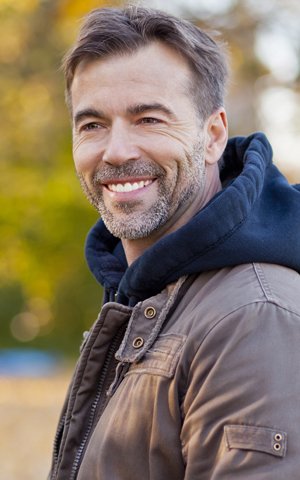 Every case of sleep apnea is unique. Your treatment plan should be just as unique.
Every case of sleep apnea is unique. Your treatment plan should be just as unique.
In this day of modern technology and advanced medical knowledge, we have more ways to treat apnea than ever before. Here in our office, we will work with you to choose the methods most applicable for your situation.
The CPAP Machine
CPAP stands for continuous positive airway pressure. This machine sends a continual flow of air through your nasal and throat passages, which is delivered via a small mask. This not only keeps those airways open as you sleep, but it also increases your oxygen levels.
This is one of the most common treatments for apnea, both obstructive and central. CPAP machines are widely available and highly effective.
BPAP and ASV
Whereas the CPAP machine delivers constant airflow throughout the night, BPAP (bilevel positive airway pressure) and ASV (adaptive servo-ventilation) regulate the flow of air based on inhales and exhales.
These are often more effective for central sleep apnea than a CPAP machine because they are able to establish a regular breathing pattern. Some can even sense when your natural breathing has become irregular and adjust their pressure patterns to fix it.
Lifestyle Changes
Both types of apnea can be dramatically reduced by adopting certain lifestyle changes. These can include:
- Reducing alcohol intake.
- Reducing smoking.
- Increasing exercise.
- Changes in sleeping position.
- Healthy weight loss.
- Reducing certain medications, such as opioids.
The specific changes that are right for you will depend on what kind of apnea you have and what its primary causes are.
 Surgery
Surgery
Surgery is not the answer for every apnea case, but there are some situations in which it can be extremely useful.
In those circumstances, it can improve breathing to have a tonsillectomy, adenoid removal, or correction for a deviated septum. These procedures open up parts of the airway that otherwise close during sleep. Surgery may be able to resolve some cases of obstructive sleep apnea.
Oral Appliance Therapy
Some apnea cases result from either a misaligned jaw, or a jaw and tongue that become too relaxed during sleep. Oral appliances are designed to correct this by simply holding the jaw and tongue in safer positions.
These appliances are very much like a mouthguard and are individually designed for your mouth. When you wear them at night, your airways are comfortably kept open with no machine, no mask, and no electricity.
Medications
Some medications are dangerous when overused and can actually cause central sleep apnea. Opioids are especially notorious for this. Reducing these medications may significantly increase the ability to breathe regularly at night.
On the other hand, there are many medications that have been used to stimulate breathing in people with central sleep apnea. These medicines, when administered in proportion to the severity of your apnea, can help your nervous system send the right signals when they are needed.
Contact Us About Your Treatment Plan
Here in our office, we work hard to make sure every treatment is right for each patient. With so many options, we are confident in our ability to come up with a plan that works for you and your individual case of sleep apnea.